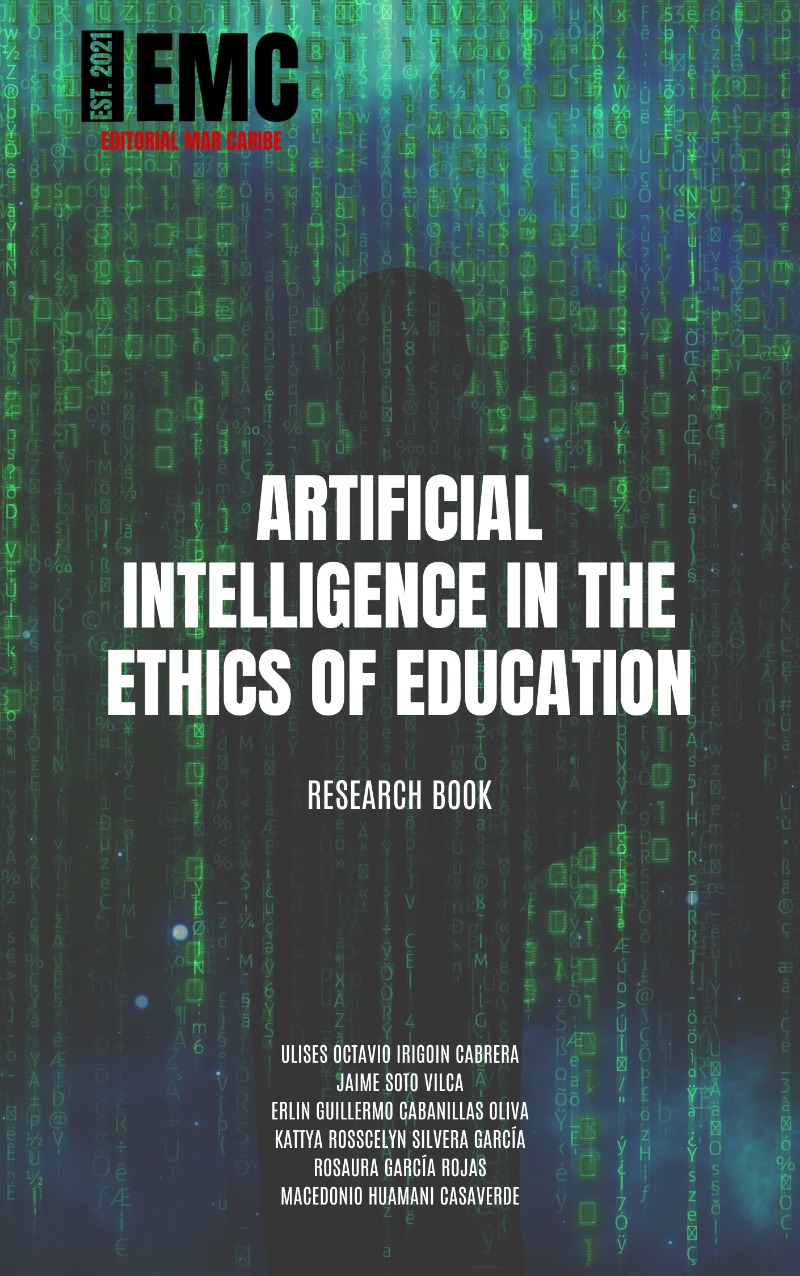
Artificial intelligence in the ethics of education
Soto Vilca, Jaime
Cabanillas Oliva, Erlin Guillermo
Silvera García, Kattya Rosscelyn
García Rojas, Rosaura
Huamani Casaverde, Macedonio
Editorial:Editorial Mar Caribe
Materia:Educación
Clasificación:Equipamiento y tecnología educativas, aprendizaje asistido por ordenador (CAL)
Público objetivo:Profesional / académico
Publicado:2024-09-12
Número de edición:2
Número de páginas:0
Tamaño:5Mb
Precio:$390
Soporte:Digital
Formato:Pdf (.pdf)
Idioma:Inglés
Libros relacionados
Inteligencia artificial en la educación y el trabajo - Ferrarelli, Mariana
El CeRP del Este también hace Historia - Rodríguez Metral, Matías; Gutiérrez, Néstor
Desarrollo infantil y desempeño escolar - González, Meliza; Méndez, Inés; Borba, Elisa; Tórtora, Giuliana; Vásquez Echeverría, Alejandro
Informe de egresos en Formación en Educación: ejercicio 2024 - Evans, Thomas; Ferrando, Fiorella
Reseña
As the prevalence of artificial intelligence (AI) continues to grow, it is crucial to recognize the potential drawbacks associated with its advancement. The rise of AI brings with it a multitude of concerns that have profound implications for both individuals and society as a whole, highlighting the pressing need for ethical considerations in the realm of AI. It is essential to recognize that misuse of AI technology can exacerbate existing inequalities, while also acknowledging that inappropriately programmed algorithms can result in unfair discrimination against individuals, such as denying them access to vital services such as health insurance. The ethical dimension of AI therefore plays a critical role in mitigating these adverse outcomes and ensuring that the benefits of AI are leveraged fairly and equitably.
Artificial intelligence plays a prominent role in various aspects of our daily lives. Voice assistants, such as Siri or Alexa, have become commonplace and allow us to interact with technology using natural language. When we search for something on Google, the predictive search feature uses AI algorithms to anticipate and display relevant search results. Similarly, online stores employ AI to provide personalized product recommendations based on our browsing and purchasing history. Many businesses now use chatbots, powered by AI, to improve customer service and support.
AI is also at the heart of home automation systems, allowing us to control and manage various devices such as lights, thermostats, and security systems with ease. Even when we use maps for navigation, AI algorithms work in the background to provide real-time traffic updates and suggest the most efficient routes. The reason behind all these advancements is that artificial intelligence can process and analyze large amounts of data and information, mimicking human intelligence. This means that AI systems possess capabilities such as reasoning, learning, perception, planning, prediction, and control, allowing them to perform tasks that were previously reserved for humans.
In this context, the European Union already warns in its proposed regulation on artificial intelligence that its use may have a negative impact on fundamental rights due to its characteristics (such as opacity, complexity, dependence on data or autonomous behavior).
Similarly, the Recommendation on the Ethics of Artificial Intelligence, adopted by UNESCO’s 193 Member States in 2021, highlights the ethical implications of artificial intelligence in terms of its impact “on decision-making, employment and work, social interaction, healthcare, education, media, access to information, the digital divide, consumer protection and personal data protection, the environment, democracy, the rule of law, security and policing, dual use, and human rights and fundamental freedoms, including freedom of expression, privacy and non-discrimination.”
In this sense, the comprehensive Law 15/2022 on Equality and Non-Discrimination represents the first regulatory approach in Spain for the use of artificial intelligence by public administrations and companies. Administrations and companies will also promote the use of artificial intelligence that is "ethical, reliable and respectful of fundamental rights."




